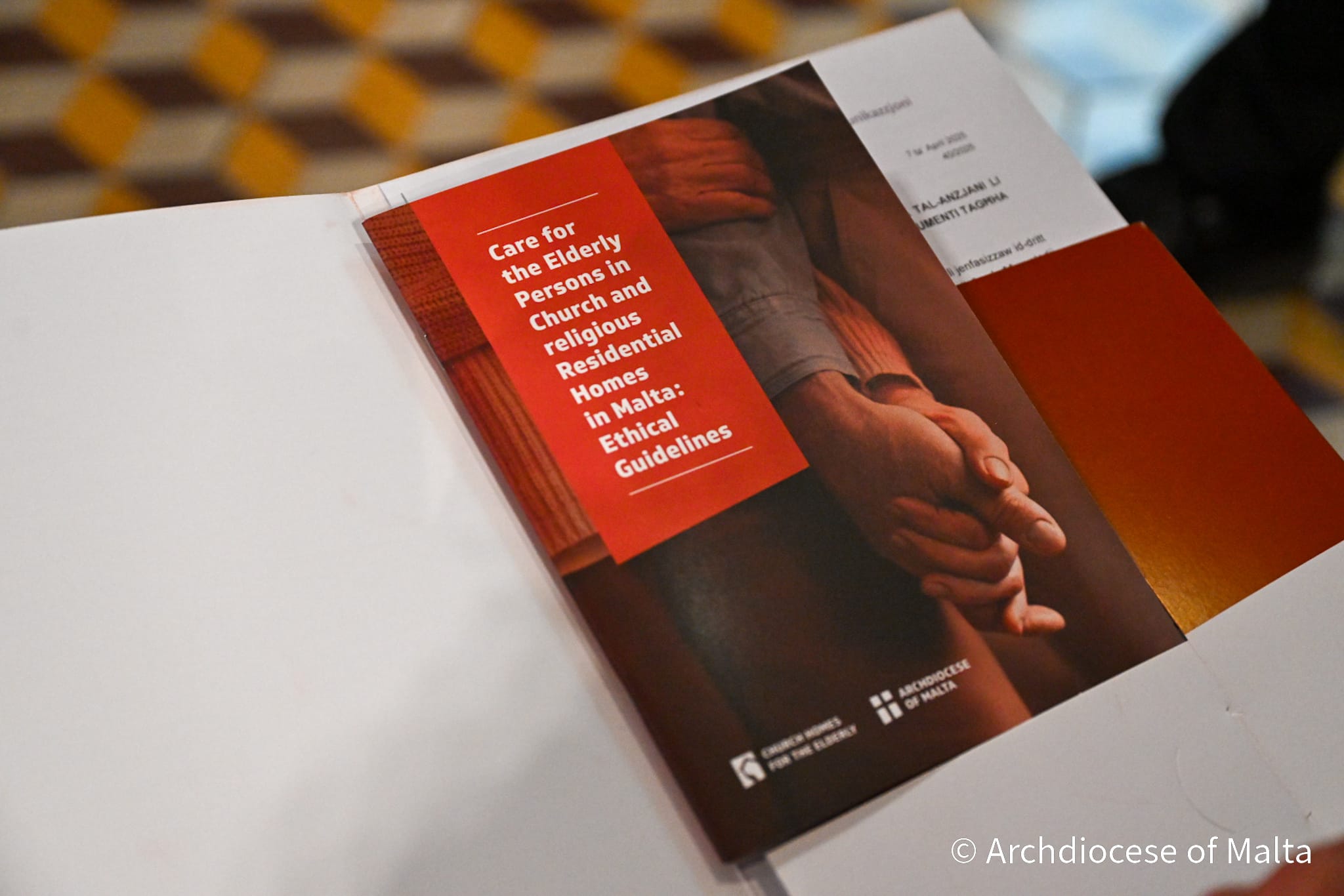
Last Monday, the Church in Malta published a set of ethical guidelines on elderly care, stating that the right to life involves ensuring appropriate protection and nurturing of life through its final phases. Entitled “Care for Elderly Persons in Church Residential Homes in Malta: Ethical Guidelines”, the document was compiled by a group of experts and ethicists. It emphasises the responsibility of society to uphold the dignity of the elderly, and to respect human life from the moment of conception until natural death.
The guidelines highlight that healthcare and multidisciplinary teams must focus on providing comprehensive, compassionate care – even when a cure is no longer possible. Medical professionals are urged to use technology responsibly and ethically, always prioritising the person receiving care. A deep understanding of the inherent dignity of life, and the true purpose of medical intervention, is essential when making ethical decisions regarding life-sustaining treatments.
They further assert that individuals have a moral responsibility to use ordinary or proportionate means to preserve their life. Such means are considered appropriate when, from the perspective of the individual, they offer a reasonable chance of benefit without causing excessive strain or financial burden on the person, their family, or society. On the other hand, means that are judged not to offer significant benefit or impose undue hardship are deemed disproportionate.
Before declaring someone to be in the final stage of life, a thorough medical evaluation must be performed by qualified professionals, to rule out treatable or reversible conditions like infections or hypothermia. It is noted that end-of-life circumstances are fluid – patients initially deemed to be near death can sometimes recover. Hence, these diagnoses require ongoing reassessment based on the patient’s evolving condition.
The guidelines also advocate for elderly individuals to appoint a trusted representative to make healthcare choices on their behalf, should they lose their decision-making capacity. Additionally, they stress the importance of creating an advance care plan that aligns with Christian ethics. Any decisions made by this representative should reflect the patient’s faith-based values and personal wishes.
Ultimately, these guidelines encourage society to focus on developing strong, compassionate palliative care systems for the elderly, allowing them to live and die with dignity – rather than shifting public conversation toward physician-assisted suicide or euthanasia. Pope Francis has underlined this in very clear words: “Euthanasia and assisted suicide are a defeat for all. We are called never to abandon those who are suffering, never giving up but caring and loving to restore hope.” He explains: “Indeed, euthanasia is often presented falsely as a form of compassion. Yet ‘compassion’, a word that means ‘suffering with’, does not involve the intentional ending of a life, but rather the willingness to share the burdens of those facing the end stages of our earthly pilgrimage. Palliative care, then, is a genuine form of compassion, for it responds to suffering, whether physical, emotional, psychological or spiritual, by affirming the fundamental and inviolable dignity of every person, especially the dying, and helping them to accept the inevitable moment of passage from this life to eternal life”.
May these guidelines be a source of inspiration to all those who are working with the elderly, especially those who are accompanying them in the last stages of their life journey.
These guidelines are accessible here: elderlyhomes.church.mt/ethical-guidelines





